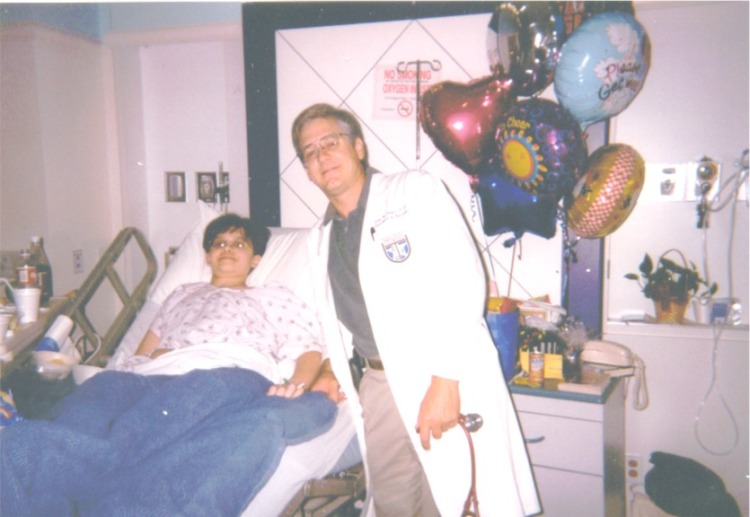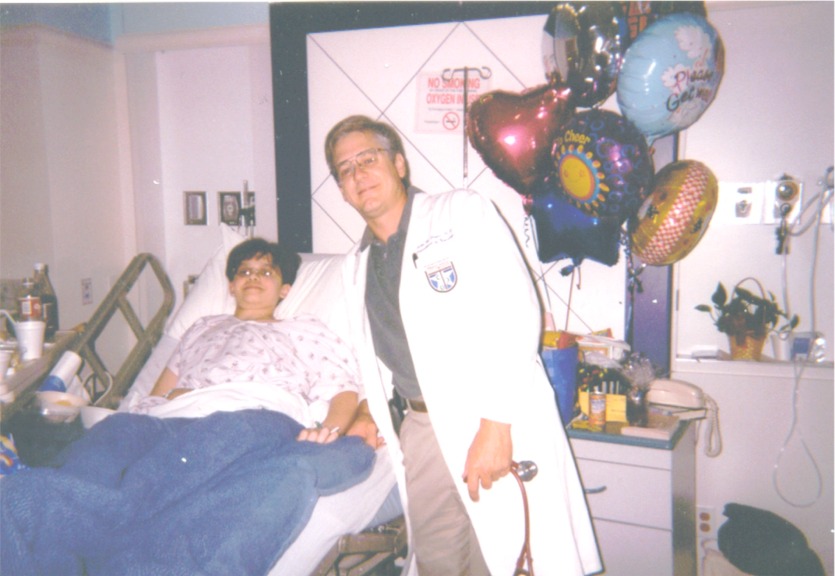It was Wednesday, September 6, 2000, sometime late in the morning. I was in the intensive care unit following major surgery (surgery #2 of 5 for Neurofibromatosis, as of June 2017) and screaming for help.
I was screaming because every tiny little breath hurt like fire and nails. Every tiny millimeter I moved or turned hurt like fire and nails. Nothing before or since has even approached the pain of these hours. I was screaming because there were about fifty Mardi Gras necklaces around my neck!
Because I didn’t know where I was or what had actually happened. Because I was alone. I was screaming. I was screaming because no one could hear me.
A few months prior to September 2000, one of my many doctors at U.T. M.D. Anderson Cancer Center was listening to my heart.
“I think I hear stomach noises.”
Thus began a puzzle that would eventually result in days and days and days of work and of heart monitors, X-rays, MRIs, and specialists galore and ultimately in major surgery that would take almost a year of recovery.
The doctors found tumors on my diaphragm and phrenic nerve. The diaphragm was paralyzed. Further, my left lung had collapsed and moved over toward the right side. My heart had moved from the left side of my body to the right side of my body. My stomach had floated up to where my left lung should have been.
My chest housed a stomach, a heart, and two lungs all tightly pressed against each other. My body was a mess! The discovery of the tumors helped explain the shortness of breath I had been having since 1998.
The surgery was major and required removing the tumors, tying the stomach down, reinflating the lung, and much, much more.
The nurses couldn’t hear me screaming because during the process of removing the tumors, my vocal cords were in the way. I was screaming, but all that came out was a tiny little whisper, a whisper that could only be partially heard when someone put their ear directly in front of my mouth. It took about six months to regain my voice. It easily could have never returned.
And I was never really alone. I just had to wait “x” amount of time before my mom could come to the recovery/ICU area. And I knew roughly where I was but not enough to know I was safe during those early post-surgery hours.
During the hospital stay, I was mean and grouchy toward everyone and everything, and I was very afraid. I was 14. And the nurse who put all those beads around my neck at first only made everything from that point on more frustrating!
This is the surgery that I call the heart, lung, chest surgery. (Although, it actually directly involved pretty much everything above my bellybutton!) Officially, in the broad classification system, the surgery is considered a thoracotomy. I am 1 of only 9 people to develop such tumors on the phrenic nerve. I am 1 of 2 to have and survive the surgery to remove them.
Today, I continue to have diminished capacity in my left lung – such that an X-ray would suggest I have pneumonia, all the live long time.
I am so glad we have such great doctors and nurses, great hospitals and medications, and such opportunities to live, thanks to science.
Dr. Andrew Joseph Pegoda
To learn more about Neurofibromatosis, please start by reading my past blogs on the topic here.

